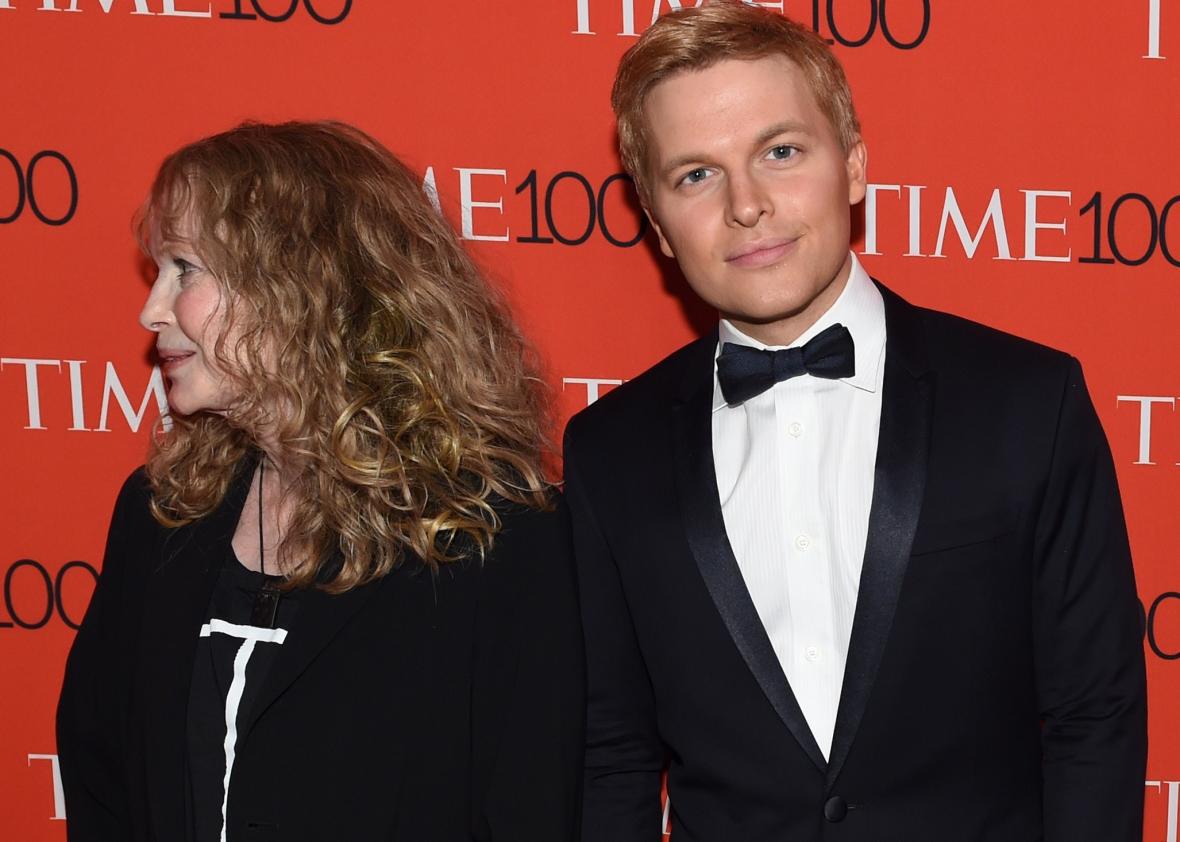Woody Allen’s son, Ronan Farrow, has delivered a harsh indictment of the media’s indifference to decades-old allegations that his father molested his sister, Dylan, when she was 7. In an essay for the Hollywood Reporter published early Wednesday morning, Farrow writes that legacy media outlets and Hollywood power players have intentionally ignored allegations of celebrity sex crimes to preserve their relationships with publicists and advance their careers.
Farrow includes himself among the ranks of journalists who have side-stepped uncomfortable questions and inconvenient narratives when it comes to celebrities accused of sexual assault. On MSNBC in September 2014, Farrow interviewed a Bill Cosby biographer but, at the behest of his producer, diverted the focus away from the rape allegations leveled against Cosby long ago because they’d never been proven and weren’t in the headlines at the time. Now that 60 women have come forward against Cosby, Farrow writes, “reporters covering Cosby have been forced to examine decades of omissions, of questions unasked, stories untold. I am one of those reporters—I’m ashamed of that interview.”
But when it comes to Allen, Farrow hasn’t seen a similar cascade of public opinion in the wake of Dylan’s 1993 accusations or her 2014 recollection of Allen’s abuse in the New York Times. Instead, Farrow has witnessed a formidable PR campaign led by Allen’s publicist presenting “talking points ready-made to be converted into stories, complete with validators on offer—therapists, lawyers, friends, anyone willing to label a young woman confronting a powerful man as crazy, coached, vindictive.” Farrow writes that the emails he saw, forwarded to him by friends, CC’ed reporters at “every major outlet” that had a relationship with the publicist, who held the key to future interviews with her firm’s other big-name clients. Farrow thinks new media outlets like BuzzFeed and Gawker are less susceptible to the lures of “access journalism” that disincentivize legacy publications from angering publicists and their clients.
The New York Times provides a perfect example of Farrow’s point—that news outlets often give more time, space, and credence to famous alleged abusers than it does to their alleged victims in an effort to avoid accusations of bias from powerful circles of influence:
When the New York Times ultimately ran my sister’s story in 2014, it gave her 936 words online, embedded in an article with careful caveats. Nicholas Kristof, the Pulitzer Prize-winning reporter and advocate for victims of sexual abuse, put it on his blog. Soon afterward, the Times gave her alleged attacker twice the space—and prime position in the print edition, with no caveats or surrounding context. It was a stark reminder of how differently our press treats vulnerable accusers and powerful men who stand accused.
But Farrow comes down hard on the Hollywood Reporter, too. Just one week before it gave Farrow space to air his thoughts on his sister’s allegations, the magazine published a less-than-critical cover-story Q-and-A with Allen; in the interview, reporter Stephen Galloway didn’t confront Allen about Dylan’s allegations at all. (Perhaps that’s some of Farrow’s idea of “access journalism” at work.) “To me it is a sterling example of how not to talk about sexual assault,” Farrow writes of the Q-and-A. The story contained a telling error, since corrected on the Hollywood Reporter’s website: In his only mention of Dylan’s lingering accusations still hanging over Allen’s reputation, Galloway wrote that law enforcement dropped all charges against Allen.
That’s not true. In reality, after discussing young Dylan’s wellbeing with mother Mia Farrow, the prosecutor made a public statement saying that he had probable cause to charge Allen but declined to do so—he and Mia had decided that Dylan would be better served by protection from years of further media scrutiny than by a conviction. “My mother still feels it was the only choice she could make to protect her daughter,” Farrow writes. “But it is ironic: My mother’s decision to place Dylan’s well-being above all else became a means for Woody Allen to smear them both.” He continues:
The [Hollywood Reporter] correction points to what makes Allen, Cosby, and other powerful men so difficult to cover. The allegations were never backed by a criminal conviction. This is important. It should always be noted. But it is not an excuse for the press to silence victims, to never interrogate allegations. Indeed, it makes our role more important when the legal system so often fails the vulnerable as they face off against the powerful.
Farrow sees signs of progress in the media, starting with the publication that commissioned his essay: “It is heartening that the Hollywood Reporter asked me to write this response.” I disagree. The Hollywood Reporter is just another media outlet trying to have it both ways: Pleasing the Hollywood powers that be by giving Allen space to promote his new film, but raking in readership numbers by stoking controversy with Farrow’s piece; putting Allen’s portrait on the cover and relegating Farrow to column space a week later, along with a lovely review of Allen’s film; offering Allen the authoritative backing of a reporter’s interlocution while making Farrow say his piece in a personal essay. In a publication that handles an alleged sex abuser so gently, an innocent error that happens to mirror Allen’s PR talking points seems not so innocent after all.
